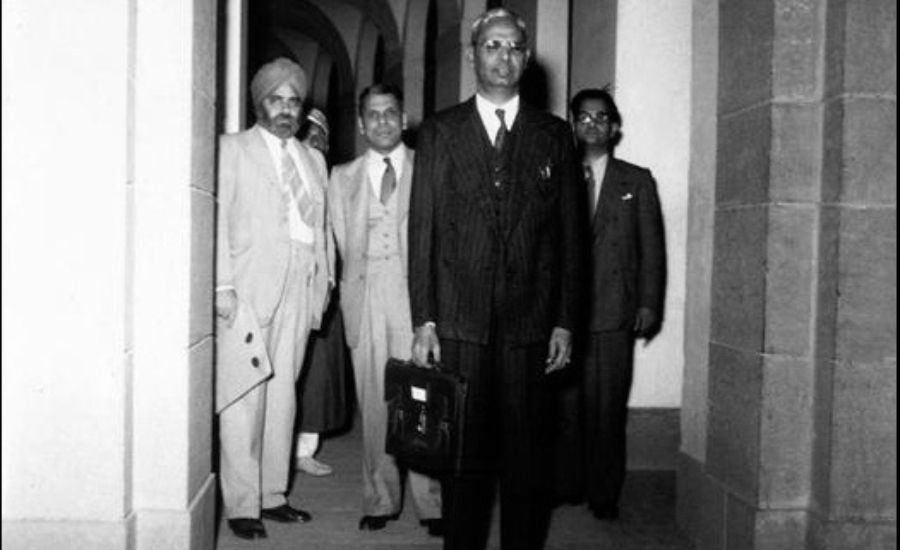
On 26 November 1947 a tall man, impeccably dressed in a suit, carrying a leather briefcase, posed for the cameras in a rather stoic fashion. He then walked into the Parliament building to make history. R K Shanmukham Chetty, India’s first Finance Minister, was familiar with all the faces in Parliament that day. The last time he saw them all together was on 30 August that year – when the Constituent Assembly last met. Now in November, the Assembly was acting as India’s legislature.
Chetty hardly spoke in the Constituent Assembly since its first session in December 1946. But silence was not an option today – he was going to present independent India’s first budget. He stood up and said:
‘I rise to present the first Budget of a free and independent India. This occasion may well be considered an historic one and I count it a rare privilege that it has fallen to me to be the Finance Minister to present this Budget. while I am conscious of the honour that is implied in this position, I am even more conscious of the responsibilities that face the custodian of the finances of India at this critical juncture…’
He then swiftly addressed the elephant in the room: ‘Whatever might be the immediate political justification of partition, its economic consequences must be fully appreciated if the two dominions are to safeguard the interests of the ordinary man in both new States’. Strikingly, Chetty went on to suggest that the economic prosperity of India and Pakistan were linked and argued for economic cooperation and integration taking into account the strengths and weakness of both countries.
Chetty went on to provide a tour de force of India’s economic situation and presented his financial plan. The budget, he said, was an interim one and covered seven and a half months starting from 15 August 1947 up until 31 March 1948. The target budget revenue was Rs. 171.5 crore, the revenue expenditure stood at Rs. 197 crore and the fiscal deficit was Rs. 26 crores.
Budget priorities mirrored India’s political and economic predicament at the time. Large portions were allocated to partition related relief and rehabilitation, defence and self-sufficiency in food grain. A whopping 47% of the total budget was allocated for defence expenditure.
Public reaction to the budget appeared measured and unpolarised. One newspaper cheekily titled their front-page report ‘Free India’s First Budget: ‘No Surprises‘ since Chetty stated in his speech that there would be no surprises associated with the budget. It appears that Chetty convincingly assuaged concerns that India wasn’t heading towards bankruptcy – and that was enough. The days of blockbuster budgets hadn’t arrived yet.
Chetty was the Finance Minister for a short period, and his tenure ended with controversy. It was alleged that he did not investigate certain mill owners who were suspected of evading tax. There seem to be two accounts of this controversy: the first argues that Chetty decided not to go after the mill owners by his own accord, the second suggests that Patel influenced Chetty. Eventually, Nehru forced Chetty to hand in his papers, bringing Chetty the unfortunate distinctionof being the first minister in independent India who was made to resign.
